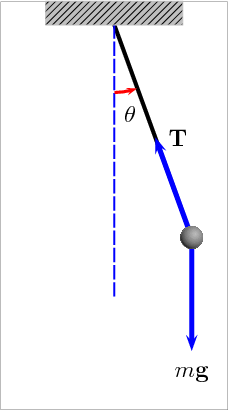Somewhere in my last article I made mention of the different weight a 100lb individual will weigh in different planets. The "anomaly" was because of the different mass of those planets which affects the gravitational effect/pull on the person.
However, does it mean you can only feel this change in weight effect if you travel hundreds and even millions of kilometres?
Will it come as a surprise if a person from New Jersey USA weighs less, by some fraction, in Nepal without undergoing any weight loss program?
Let's jump right in and find out together.
 My perfect spherical Earth by NASA / Goddard Space Flight Center [CC BY 2.0]
from Flickr Commons
My perfect spherical Earth by NASA / Goddard Space Flight Center [CC BY 2.0]
from Flickr Commons For as long as I can imagine, the image on the right is my idea of the shape of the Earth, especially during my primary and high school science classes. It was later I got to know the actual shape of the Earth is nothing perfect like the picture on the right. It is something that is an oblate spheroid, and some people describe it as "pear" shape. If you click on the 3D animation on the left, you may get to see a shape that looks like a pear. The shape was as a result of the centrifugal force due to the spinning of the Earth.
The imaginary line that divides the earth at the centre bulges out like the pot belly of a man who likes beer a little too much. The centre is known as the Equatorial line.
Contrary to most bulges found in man, the Earth is a hard worker. The equator rotates at an incredible speed of up to 1000 miles per hour or 1600 kilometres per hour. This is almost twice the speed of a jumbo jet.
We should be feeling dizzy if it turns that much, wouldn't we? Thankfully, no. That would have been a problem, but physics have an explanation for that, anything that is moving at constant speed (no matter the rate) will not be felt. This is due to the tendency of a body to continue in its present state of motion unless acted upon by an external force. The law of inertia at play. The earth's rotation will not be felt unless, of course, it suddenly stops spinning, which we hope won't happen any time soon. The effect is similar to you enjoying that cold bottle of your favourite soda in a vehicle moving at a constant speed of 100km/hr. The liquid inside the cup will remain calm until a madman cuts off the driver and he suddenly applies the brake, making the soda spill all over your expensive designer suit. Bummer.
Happily, for some of us staying close to the equator, we will not experience the more spin effect except in things like the faster pendulum clock which spooked the 17th Century French astronomer. The explorer, Jean Richer, realised that his clock runs 2.5 minutes late

Pendulum in action By Ruryk [CC BY-SA 3.0] from Wikipedia Commons
If we take a look at the period (T) of oscillation of a pendulum clock is a function of acceleration due to gravity in the area (g)
T≃2 π√(L/g)
where the L= length of the pendulum.
If a location has more gravity pull (g), the period will be shorter. A shorter period means the pendulum will swing faster.
Jean Richer, observed that the pendulum clock was slower by 2 1⁄2 minutes in Cayenne when compared to the time at Paris.
This phenomenon was because French-Guyana, the east coast of Soth American is nearer the equator compared to Paris. This fact makes the gravitational force not to be the same. Jean Richer inadvertently became the first person to notice that gravity is not the same at all locations on Earth due to the oblate shape of it.
Later, scientists were able to confirm the value of gravitational accerlaeration in Paris to be approximately 9.811 m/s2, while that of Cayene is approximately 9.781 m/s2
The favourite gravitational constant magnitude value of 9.81m/s2 is an average one taken to make high school physics classes easier.
Time goes a little bit slower at the equator than at the poles. The time is not the only thing affected; people also weigh less at the equator than at areas far from it, e.g. the Poles.

Sunset at Hudson Bay Canada By Gerald Ludwig, U.S. Fish and Wildlife Service [Public domain], via Wikimedia Commons from Wikipedia Commons
The equator may not be the only factor responsible for the different weight, however small, across the Earth's surface. Such place with very low gravity is Hudson Bay located in the northeastern part of Canada. The difference in gravity, though small (0.0005%), makes a significant difference.
The anomaly was a result of the recovering rocks in the area that was compressed by ice (during the ice age) which ended some 20,000 years ago. The melting ice creates convection current under the earth's mantle which in turn pulls off more of the Earth's mass on that location thereby reducing the gravity in the location. People over there will weigh less than their compatriots elsewhere.
REFERENCES
- Pendulum
- World pendulum - A distributed remotely controlled laboratory (RCL) to measure the Earth's gravitational acceleration depending on geographical latitude
- Gravity
- Satellites solve mystery of low gravity over Canada
If you write STEM (Science, Technology, Engineering, and Mathematics) related posts, consider joining #steemSTEM on discord here. If from Nigeria, there may be need to include the #stemng tag in your post. You can visit this blog by @stemng for more details. You can also check this blog post by @steemstem here and this guidelines here for help on how to be a member of @steemstem. Please also check this blog post from @steemstem on proper use of images devoid of copyright issues here

You are ideally taking me back to some interesting part of mechanics. Weight and its variations in different regions of the word as a result of differences in gravitational force acting on it. Very engaging discourse.
@eurogee of @euronation community
Downvoting a post can decrease pending rewards and make it less visible. Common reasons:
Submit
I'm glad I was able to do that. Thank you very much.
Downvoting a post can decrease pending rewards and make it less visible. Common reasons:
Submit
✌️
Downvoting a post can decrease pending rewards and make it less visible. Common reasons:
Submit
So if I take a physics exam in Cayenne and I use 9.8 as I have been thought here, I'd be wrong.
Well, that's the fun thing about science.
Downvoting a post can decrease pending rewards and make it less visible. Common reasons:
Submit
You'd still use 9.8 m/s2 there as it is the average unless of course, they tell you the g value to use.
Downvoting a post can decrease pending rewards and make it less visible. Common reasons:
Submit
Well that's true though.
Downvoting a post can decrease pending rewards and make it less visible. Common reasons:
Submit
Nice post. Weldone sir. How then is the time deficit at the equator accounted for? Is that the origin of daylight saving settings we see on some of our phones? Or that's a different thing?
Downvoting a post can decrease pending rewards and make it less visible. Common reasons:
Submit
It is a different thing entirely. Daylight saving time is the tradition of some countries purposely setting of time to be one hour faster. Read more about it here.
Downvoting a post can decrease pending rewards and make it less visible. Common reasons:
Submit
Thank you
Downvoting a post can decrease pending rewards and make it less visible. Common reasons:
Submit
We learn everyday..I can't believe high school geography is becoming pointless day by day. @agbona been re-educating me about the planets recently. Here is another spoiler! I thought the earth was perfectly spherical after accepting it isn't flat...So, now it;s not even perfectly spherical..Well, we keep learning
So, 9.81 m/s was a "let me rest" value for us then..Cool though..
Nice lesson I've learnt here
Thanks for your continuously interesting posts
Downvoting a post can decrease pending rewards and make it less visible. Common reasons:
Submit
At least we know it is not flat :)
Thanks for dropping by.
Downvoting a post can decrease pending rewards and make it less visible. Common reasons:
Submit
Yeah, even though we still have some "unbelievers"....
It's a pleasure always...
Downvoting a post can decrease pending rewards and make it less visible. Common reasons:
Submit
The distance of an area with the equator is more influential on the increase of gravity acceleration than the height of the mountain and the local anomaly.
If someone drops objects simultaneously from a height of 100 meters from Nevado and the Arctic Ocean, then objects that fall in the Arctic Ocean will reach Earth's surface 16 milliseconds earlier than those in Nevado.
This difference will also affect a person's weight. Someone who is in the Arctic will weigh one percent more than if he were in Nevado. However, this gravitational force only affects the weight, while its mass remains.
More accurate measurements of the gravitational field on Earth are needed in the process of development on Earth. The making of alleys, reservoirs, to high-rise buildings requires local gravity data to guide the height measurements that may be applied to the building.
Downvoting a post can decrease pending rewards and make it less visible. Common reasons:
Submit
Thank you.
Downvoting a post can decrease pending rewards and make it less visible. Common reasons:
Submit
This is the shape of earth before or after removing all the water from the oceans?
Great article, thank you for sharing :)
Downvoting a post can decrease pending rewards and make it less visible. Common reasons:
Submit
No. Currently, the earth is oblate spheroid in shape.
Downvoting a post can decrease pending rewards and make it less visible. Common reasons:
Submit
I actually thought the earth is geoid.. According to what my geography teacher taught me.
Downvoting a post can decrease pending rewards and make it less visible. Common reasons:
Submit
Geoid is one of the models used in the description of earth's shape in a process known as geodesy.
Downvoting a post can decrease pending rewards and make it less visible. Common reasons:
Submit
Sounds interesting.. I haven't even looked up geoid till now 😂. He told us the earth was a combination of a circle with the top and the bottom shaped in a flat manner which could be called geoid.
Downvoting a post can decrease pending rewards and make it less visible. Common reasons:
Submit
WOW! This is very educative. Great article. I have always believed that individual low weight in some places is due to malnutrition.
Downvoting a post can decrease pending rewards and make it less visible. Common reasons:
Submit
The difference is not much. Malnourished people have less weight all the world over. Thank you.
Downvoting a post can decrease pending rewards and make it less visible. Common reasons:
Submit
Lots of solid information here. Seems to me that the perceived shape of the earth has to do with the atmosphere.. First time I realized that it was like a sack of bricks hit me in the face... duh... another perplexing topic I’d like to see you cover would be time dilation from special relativity. Keep up the great work!!
Downvoting a post can decrease pending rewards and make it less visible. Common reasons:
Submit
I'd definitely be checking on time dilation in one of the post. Thanks for dropping by.
Downvoting a post can decrease pending rewards and make it less visible. Common reasons:
Submit
I can still remember that first narrative of the Shape of the Earth, I believe it was meant to simplify things at that age. Great post!
Downvoting a post can decrease pending rewards and make it less visible. Common reasons:
Submit
You may very probably be right.
Downvoting a post can decrease pending rewards and make it less visible. Common reasons:
Submit
wawuu! the shape of the earth hit me hard, and how amazing is it that we dont feel dizzy when the earth rotates at such speed? i'm super overwhelmed. Thanks for sharing
Downvoting a post can decrease pending rewards and make it less visible. Common reasons:
Submit
We don't notice because it keeps spinning at that constant speed.
Downvoting a post can decrease pending rewards and make it less visible. Common reasons:
Submit
Mind blown... Of you are not told something won't have an idea of it
Does it mean I can't be sure about my weight because if varies?
Good one boss
@osariemen cares
Downvoting a post can decrease pending rewards and make it less visible. Common reasons:
Submit
I'm sure you mean it varies
Downvoting a post can decrease pending rewards and make it less visible. Common reasons:
Submit
@addempsea, I didn't notice the typo till you pointed it out.
Downvoting a post can decrease pending rewards and make it less visible. Common reasons:
Submit
It happens
Downvoting a post can decrease pending rewards and make it less visible. Common reasons:
Submit
Thanks for the correction
That is what keypad prediction can do to a man
Downvoting a post can decrease pending rewards and make it less visible. Common reasons:
Submit
You welcome bro
Downvoting a post can decrease pending rewards and make it less visible. Common reasons:
Submit
@osariemen, the change is really not that big to be an issue but there are changes to it. Thank you.
Downvoting a post can decrease pending rewards and make it less visible. Common reasons:
Submit
Thanks you too for making me understand something new
Downvoting a post can decrease pending rewards and make it less visible. Common reasons:
Submit
that is damn true..
Downvoting a post can decrease pending rewards and make it less visible. Common reasons:
Submit
Thanks
Downvoting a post can decrease pending rewards and make it less visible. Common reasons:
Submit
Thanks for sharing
Downvoting a post can decrease pending rewards and make it less visible. Common reasons:
Submit
Thanks
Downvoting a post can decrease pending rewards and make it less visible. Common reasons:
Submit
A great post about science
From here we can learn a lot of science
Thanks for the post sir
Downvoting a post can decrease pending rewards and make it less visible. Common reasons:
Submit
Thank you too.
Downvoting a post can decrease pending rewards and make it less visible. Common reasons:
Submit
Posted a very good one. I learned something unknown from the post. It is a really interesting topic ..
thanks a lot,, continue it.........
Downvoting a post can decrease pending rewards and make it less visible. Common reasons:
Submit
Thanks
Downvoting a post can decrease pending rewards and make it less visible. Common reasons:
Submit
So now i know where to go to feel slim ;) and don't worry about the weight at all :D
Downvoting a post can decrease pending rewards and make it less visible. Common reasons:
Submit
I've known about the variation of gravitatiinal effect and how it affects weight for a while, but the idea of the pendulum's period and other factors contributing to change in weight is interesting to know. Well done boss.
Downvoting a post can decrease pending rewards and make it less visible. Common reasons:
Submit
I love this illustration. It gave me a clear understanding of how the earth rotate and yet we didn't feel it. Thanks for this information sir.
Downvoting a post can decrease pending rewards and make it less visible. Common reasons:
Submit